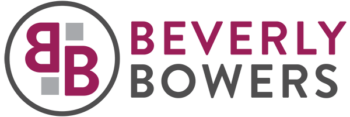“Numbers, numbers, numbers! Everywhere I look there are numbers! I hate math, I hate numbers!”
Wow! Does that sound like you? Maybe not every day, but some days? Right now, I am trying to put together all the forms and records needed to file my income tax and, I will tell you, there are days that I just want to pull my hair out! You, too? Blessings to the CPA that files my tax forms for me as I get totally frustrated with what goes where and the language is not always familiar to me—and I am a financial professional! I have sympathy for any of you who file income tax for yourselves. My situation may be a little more complex than yours, but not nearly as complicated as some of my former clients.
What is it about math and numbers that tends to cause anxiety or procrastination? Is it purely tax related? After all, we deal with numbers and math every day in so many ways:
- Recipe ingredients are measured in full or partial cups, tablespoons, teaspoons, pounds, ounces, grams, etc. If you don’t have the right measuring tool, don’t you figure out how to measure correctly using what you have, e.g., three teaspoons equal one tablespoon?
- Purchases made with currency or coin require math to verify the change you receive is correct. Thankfully registers now automatically tell a clerk what change is required or deliver it, but do you double check? (My father, who was a math teacher, would be aghast at the number of people who have no idea how to count change, let alone know the difference between a nickel and a quarter!)
- Carpenters constantly measure and cut and saw angles to build a solid structure.
- Doctors prescribe medicine in exact dosages, and you follow their instruction.
- Musicians read music that is divided into measures with whole, half, quarter, eighth, sixteenth, etc. notes. They understand exactly how long to hold the note based upon that description.
- Days are divided into units of hours, minutes, and seconds. You schedule your time using those units despite differences in time zones.
- Workouts are broken into time blocks or repetitions or laps or miles.
- Counting is one of the first things we teach children.
- Weight of a package determines its postage cost; weight of a suitcase determines if there is an overcharge.
- Dieters count calories.
These are only a few examples but demonstrate the obvious—you use numbers and math every day. So why do certain situations cause anxiety, worry, or concern?
Perhaps it relates to the degree that a bad outcome could cause distress either to you or to others. Could you lose money or your house or car? Do you suspect that you might owe taxes beyond your capacity to pay? Perhaps you are embarrassed by your lack of knowledge. Certainly, that is part of my frustration with completion of my tax return. I do not fully understand the language. Perhaps it is because you don’t want to take the time to learn, or you would rather be doing something else. Filing taxes is not high on my list of fun things to do! Perhaps you have not had the opportunity to learn or ask questions in a “safe” environment in which you feel respected and comfortable revealing your ignorance. Perhaps the opportunity is there but it is too costly.
There is no shame in not knowing or understanding. It is disheartening, however, to realize that so many opportunities to learn and grow are not taken. I understand that you have a limited number of hours in your wakeful day and probably have a limit to what you can spend, so priorities must be set. What do your choices say about your priorities?
I am as guilty as the next person. I find myself playing solitaire to unwind at night instead of catching up on the financial markets or reading some new research paper that could provide insight or new perspectives on the issues that matter to you—those I am trying to reach through my blogs. Why do I do that? Part of it is an escape from my day in which I spend hours devoted to writing about financial topics and learning about ways to market my book. Tasks one of which I love—writing—and one I need help to figure out—marketing. Marketing is a struggle for me.
I wanted to write a book for beginning investors for years and finally had the time to write during COVID. I enlisted feedback as I wrote—from my family first, then friends in the financial industry, and finally from publishing and marketing professionals. I took seminars on all kinds of topics to learn more about the book publishing process, I browsed information online, and then hired a professional publishing coach. Everything I did led to something or someone else that helped me on my publishing journey. Some of the assistance was free and some had a price tag, but I gradually came to understand both the language and the players and their roles. It took time, money, and persistence—and I asked lots of questions!!
Now I am struggling with marketing the book. That aspect of writing a book is entirely new to me. My experience with marketing was brief when I had my own financial advisory business. I made some big marketing mistakes with that business, but I learned from my bad decisions. Since then, even more choices exist that entice me to spend marketing dollars. Some of you are savvy with the latest social media but my learning curve has just begun. Luckily, I have the assistance of a marketing professional who relieves me of some of my anxiety—some, but not all! I always feel that I should be doing more!
How about you? What causes you frustration and anxiety? For some of you it might be financial related. Do any of the following questions sound familiar? How do I get started saving or investing? How do I know if I am on the right track? Who can I trust to answer my questions without making me feel like a dummy? Where can I go to get honest answers without a sales pitch? How do I use the information I find online to create a financial plan? Will I have enough to retire, or do I have enough to quit my job and start a new direction? Will I be able to send my children to college? How much does it cost?
These are all great questions! Some, of course, are much easier to answer than others. Some require lots more information about you, and for those situations a financial advisor who is a fiduciary is the best answer. The reason I wrote my book: How to Dress a Naked Portfolio: A Tailored Introduction to Investing for Women, was to answer the basic questions to get you started (more information on my website, bevbowers.com):
- What are my goals?
- How much will I need to reach those goals?
- How much risk/volatility can I stand on my journey?
- Where do I find financial products?
- What products make sense for me?
- How do I combine what I already have with new choices?
- Are there other expenses?
These questions are just as relevant for men as for women, but I wrote the book specifically for women for several reasons. Women typically have smaller financial resources than men but between 80-90% will have sole financial responsibility for her household at some point in her life. Data also reflects women have lower financial confidence than men and the gap widened during the COVID pandemic!
One final note. I found the help of professionals so valuable in my book publishing process. You may decide that you want ongoing help with your financial “house”. If you do, here are some key questions to ask as you interview potential advisors:[i]
- What are your qualifications and credentials?
- What services do you offer?
- Will you have a fiduciary duty to me?
- What is your approach to financial planning/investing?
- What types of clients do you serve?
- Will you be the only advisor working with me?
- How will I pay?
- How much do you charge?
- Do others stand to gain from the financial advice you give me?
- Have you ever been publicly disciplined for unlawful or unethical actions in your career?
After the last question, the next most important question on this list is, “Will you have a fiduciary duty to me?” Why? Because a fiduciary has not only a moral and ethical duty to put your interest first, but also has a legal duty to do so. That is not a universal requirement for a financial advisor. Where can you easily find an advisor who is a fiduciary? Look for a Registered Investment Advisor (RIA) or a Certified Financial Planner® professional. You can search for an advisor in your area who is a CFP® professional at the following website: letsmakeaplan.org.
If this blog prompted a topic or general question that you would like addressed in the future, please visit “Send Me Your Questions”. I have a feeling that you will be conscious of all the ways you use numbers this week.
Enjoy!
~Bev Bowers, CFP®
[i] N.A. 10 Questions to Ask Your Financial Advisor. Retrieved from
https://www.letsmakeaplan.org/how-to-choose-a-planner/10-questions-to-ask-your-financial-advisor



